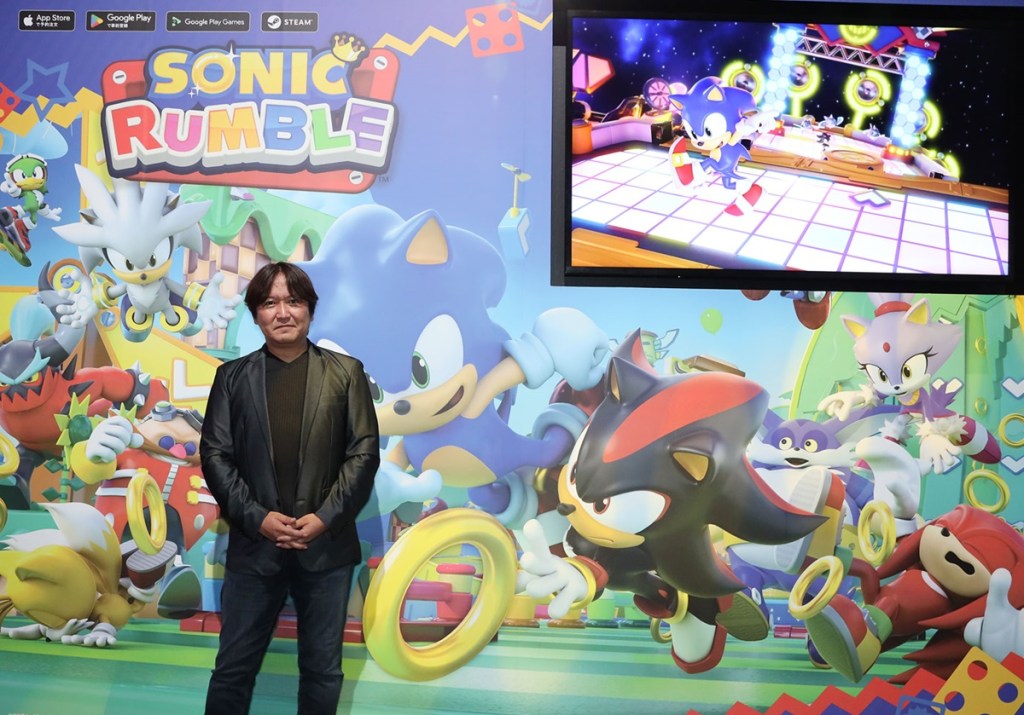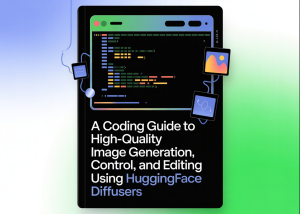How Sonic Rumble is taking Sega into mobile games | interview

On my recent trip to the Tokyo Game Show, I was able to spend my pre-show time in the heart of Tokyo on visits to iconic game companies like Sega.
At Sega, the company was excited about the upcoming release of the third Sonic movie in theaters — something that has helped revive the franchise in recent years.
At Sega’s headquarters in Tokyo, I was treated to a tour of common areas of the company as well as a lunch with a group of influencers. One was dressed in a big fake moustache and a round black ball, while another influencer said that he makes Sonic content every day of the year. We all got to play Sonic Rumble, an upcoming PC and mobile game, on smartphones. The game was a lot like Fall Guys, the cute battle royale where players competed in obstacle course races on crazy tracks — only with characters from the Sonic games.
The next day, in a press room at the Tokyo Game Show, I interviewed the team leaders. I spoke with Takashi Iizuka, head of the Sonic franchise at Sega, and Makoto Tase, game director on Sonic Rumble. Here’s an edited transcript of our interview.
Join us for GamesBeat Next!
GamesBeat Next is almost here! GB Next is the premier event for product leaders and leadership in the gaming industry. Coming up October 28th and 29th, join fellow leaders and amazing speakers like Matthew Bromberg (CEO Unity), Amy Hennig (Co-President of New Media Skydance Games), Laura Naviaux Sturr (GM Operations Amazon Games), Amir Satvat (Business Development Director Tencent), and so many others. See the full speaker list and register here.
GamesBeat: Could you talk about the beginnings of the game, the inspiration for it and what you’re trying to accomplish?
Takashi Iizuka: The start of the project–Sega currently has other Sonic mobile games, like Sonic Forces and Sonic Dash. Those come from outside of Sega in Japan, though. In turn, Sega Japan has some hit mobile titles, but we haven’t had a title using Sonic. We wanted to use the Sega Japan dev team to create a game using Sonic. That’s where we started.
GamesBeat: How do you think about the franchise and how often you want to make Sonic games? It was interesting when one of the creators talked about making Sonic content every day.
Iizuka: For consumer titles, our target is to release one new title each year. This year we have Sonic Rumble coming out on the mobile side of things. We wanted to do something for Sonic on mobile. Alongside that, we have the movie, the animation, the comics. Those will come in between the major consumer and mobile titles. We’ll spread all that out over the course of the year to keep Sonic fans excited.
GamesBeat: With the movies being so successful, is that taking additional time from Sonic game developers? Do you have to oversee a lot of that movie content as well?

Iizuka: Before the success of the movies, we had our core Sonic fans. After that, we’ve drawn additional new fans through the movies. We’re not seeing any difficulties with the dev team as a result, but we do need to create titles that can also make those new Sonic fans excited. That could be a new challenge in producing new titles.
GamesBeat: How would you describe Sega’s strategy in other media in the wake of those movies?
Iizuka: Within Sega, the Sonic brand defines the transmedia strategy for the whole company. I moved to the U.S. nine years ago. During that time, the Sonic brand hit a really low point. Users weren’t very interested in Sonic. It wasn’t popular. From that experience we had to make games, make animation, make movies, and recover our core Sonic fans. We had to find new Sonic fans as well. By drawing more fans over time, we eventually found success with the Sonic IP. That’s the same strategy we’re now trying to pursue with other IP at Sega.
GamesBeat: I saw you had a very successful game in Roblox, with more than a billion plays. It was a surprise to see that of more than 400 brands on top of Roblox right now, Sonic is number one. Did that surprise you at all? How did you go about making that a success?
Iizuka: Previously with Sonic titles, we mostly made consumer games that users had to buy to play. With Roblox it’s free, and a lot of the younger generation, a lot of kids play games there. The initial goal was to find more new users who could play Sonic and learn about Sonic within Roblox. We thought it would be a great experience for new users to find the Sonic IP. That said, the dev team has to update the Roblox game every week, and that’s hard work. But as a company we feel like it was a very good experience.
GamesBeat: Are you thinking more about user-generated content? Will users be able to create their own Sonic experiences one day?

Iizuka: At the moment we’re not planning anything around user-generated content, but we see fans making their own fan games. We follow that and sometimes enjoy watching them.
GamesBeat: With Sonic Rumble, does it feel like that game fits in a particular genre, alongside games like Fall Guys? Is there a particular twist that makes this very Sega, very Sonic?
Makoto Tase: Compared to those other titles, we feel that, first, we have the speed that everyone knows from Sonic. We wanted to make it a very Sonic-like game, and that’s the first thing we thought about. To show that we’ve implemented features and stage varieties to show that Sonic speed in the game. Also, compared to games like Fall Guys and Stumble Guys, we feel that Sonic is a very strong IP. We have the unique stages, the expression of the characters, the world of Sonic. That has an impact on core Sonic fans and new Sonic fans. Those are some of the unique strong points our game has.
Users compete to get as many rings as possible, and they can try to take rings away from each other. That competitive aspect brings a mix of excitement and frustration. There’s a lot of excitement within the game.
GamesBeat: Do you see some similarities between Sonic and Angry Birds, the characters in those franchises?
Iizuka: In March we had a cross-promotion between the mobile Angry Birds and Sonic. They both feature animal-based characters. We feel like that cross-promotion had a positive impact. These two IPs have a good relationship with each other. Both audiences seemed to have a good time with that cross-promotion. In the future, if we have another opportunity, we’d definitely like to do more.

GamesBeat: One of the interesting things about Angry Birds is you can learn how to play it in a few seconds. It’s a very accessible game. What do you think you can learn from that kind of simplicity?
Tase: The Rovio side has a lot of experience making mobile titles. They know how to make successful mobile games. They know how to make them accessible to many users. They understand the marketing side on a worldwide level. The experience they have, we’ve definitely taken that into account making this game. We’re happy to work with them and learn from their experience.
GamesBeat: When I played yesterday I noticed that I could make a mistake, or more than one mistake, and I wouldn’t necessarily come in last place. I could still recover and catch up. I thought that was interesting, that even if you made mistakes, you didn’t have to just give up.

Tase: When we were making this game, we wanted to reach a wide audience. As you said, if users make one mistake and watch better players get first every time, that wouldn’t be as much fun for that wide audience. That’s why we have some random elements, some comeback elements, those aspects of the game. We put in an effort so many users could have fun during the game.
GamesBeat: Do PC players play alongside mobile players, or are the platforms separated in multiplayer?
Tase: Right now we’re thinking they can play at the same time. We initially had some discussions about balance. The game might be easier to play using a controller, but we’re not a game like League of Legends where the competitive side of things–we didn’t want skill to be the only thing in this game. We wanted to have more of a party aspect. We wanted as many users as possible to be able to play. That’s why we decided to keep PC and mobile players in the same games.
GamesBeat: Is there anything else you wanted to focus on today?

Tase: The number of stages and the variation of the stages is one thing we wanted to emphasize. In the pre-launch phase we have 35 stages, but when we hit the global launch we’re expecting to have more. Each stage has a different game design. The personality of each stage is very different. We feel like users can have a lot of fun with every stage. We definitely want users to see that and enjoy that.
Iizuka: We’re launching this winter, and once we get started on live ops we’ll have new content coming out every few weeks. That’s one of the big advantages of live games over traditional consumer games. There are many characters within Sonic, and users will be able to play with some of the more minor characters. Those characters will get their chance to be the hero in this game. We’re also planning to do collaborations with other IPs, and we hope that will be exciting for users as well.











